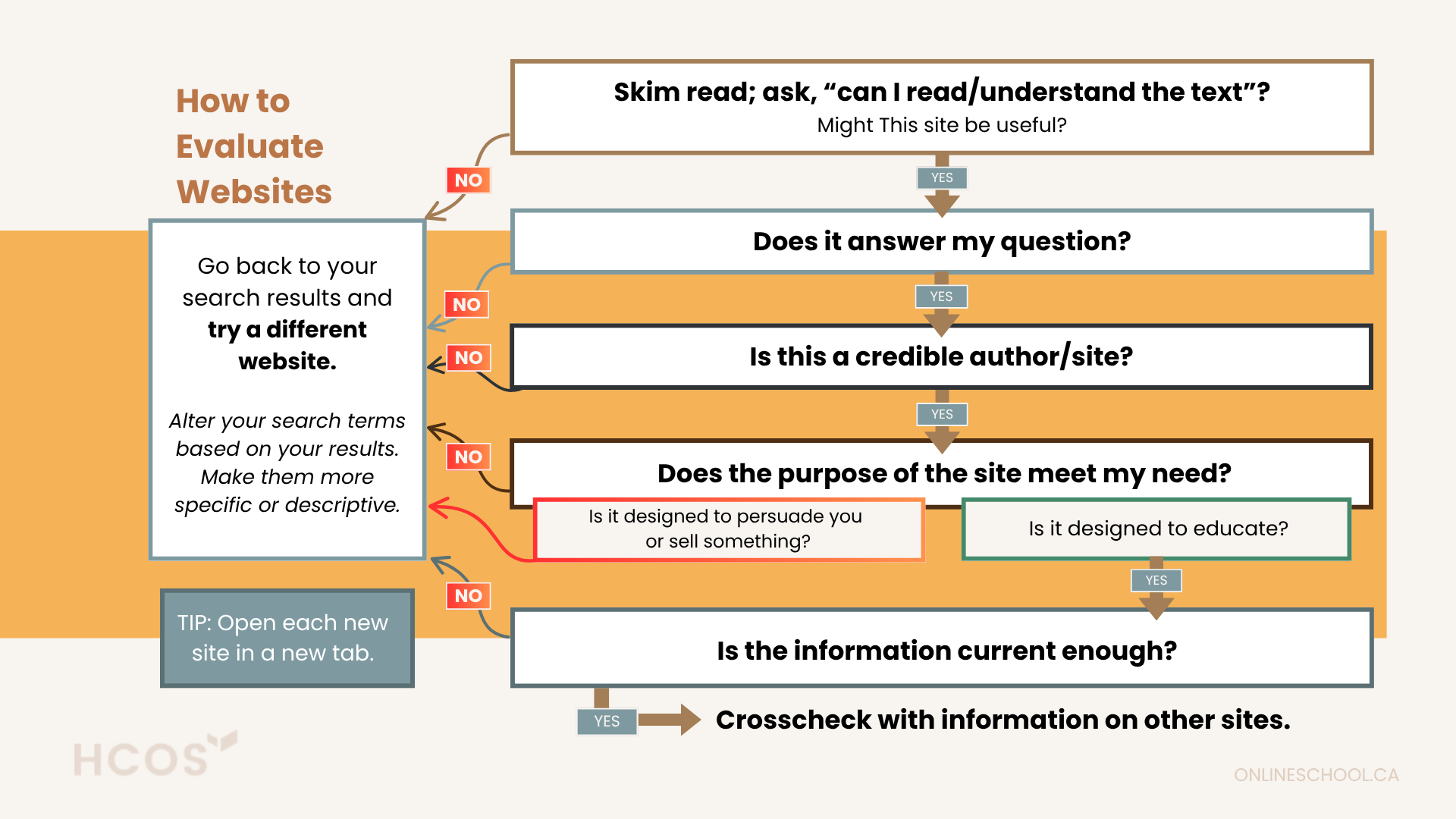Finding Credible Information Online
How to Evaluate Websites
Other Resources
Infographics
Searching Online
- Consider using a safe search engine such as Advanced Google in grades 5-12, or if in grades K-4, Kiddle
- Most search engines store your search history and other data about what you browse online. DuckDuckGo is a search engine and browser that doesn't track your online activity or personal data.
- If students use Google, parents should ensure the SafeSearch filter is “on.” Advanced Search will provide more relevant results.
- Grade 10-12 students could use Google Scholar
Tips for Effective Searching
-
Use good keywords and quotation marks to refine your questions.
-
Be aware of advertisements on the website page, as this might indicate a paid site.
-
Check the source URL for relevancy (.gov, .edu, .ca, etc.)
-
Select sources that both challenge and confirm your existing perspective.
Questions for Determining Whether a Source is Credible
-
Does this writing seem too good to be true? You may wonder about its validity or truth. Ask these questions: Does this article seem unbelievable? Does it conflict with something you already know to be true? Is it greatly exaggerated?
-
Who wrote this information? Identifying the author can help you determine the credibility and truth of your source. Determine the author’s education, training, or experience/knowledge on the topic. Does he or she have a professional title or belong to an established and respected organization? Can you take extra steps to learn more about the author, i.e., on an “About Me” page? Who owns the website? Sometimes, the owner and author may be different. To find the owner, search the URL on Whois.
-
What type of website is this? A political organization? A non-profit organization? A social media celebrity? Check the URL. Read the “About” section or profile bio. Do another search for more information about the source.
-
Who else links to the site and why? What is their reputation? Do they stand to gain anything by attacking or supporting a point? Type the website link into your search engine with quotation marks and see what reviews appear.
-
When was this article written? How old is the information on the website? This will determine its reliability and accuracy. There should be a date when the information was written, and links included on the site should be updated and working. Check the bottom of the website to see the latest update.
-
Can the information be verified? To check the accuracy of an article or website, look at the sources used in the article, whether they are listed in the article, and whether there is a good bibliography or other links to provide additional sources of information. Can you find other sources which share identical information?
-
How does the tone of the writing reflect credibility? The way an article is written will reveal clues about its credibility. Check for good grammar, spelling, punctuation, and style of language. Is the language demanding, critical, or over-emotional? Is the writing too informal and more colloquial? Does it only share one point of view? If you notice a bias, what facts does it use to back it up? Does it appear to make people angry or try to manipulate people?
-
Why does the author write this information? Every author comes from a particular worldview or perspective. Some people will write articles to contribute to unreliability, bias and untruth. That does not discount argumentative essays or passion/opinion pieces. However, use your judgement and the clues about credibility as shared above before using this as a reliable source.
Searching for Images
Searching for images can be an interesting adventure. You need to find ones that fit your topic, can be used (usage rights), and do it “safely.” Google is often the first place people turn to. There are ways to ensure you can use images you find online (tools, usage rights, labelled for reuse, etc.). However, other sites can be more efficient for searching images that are free to use. Here are some recommended places to search for images.

